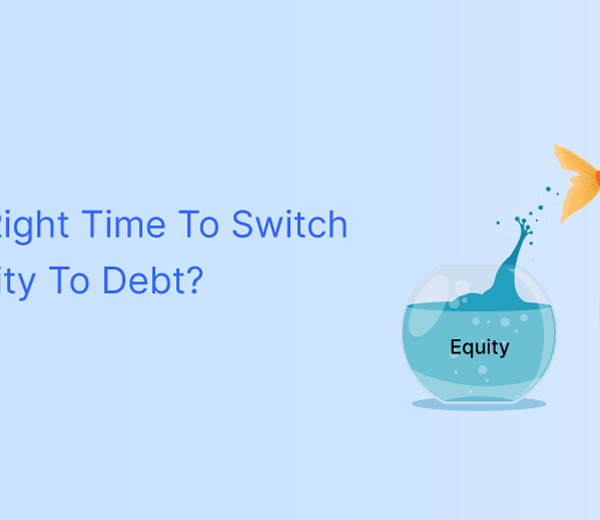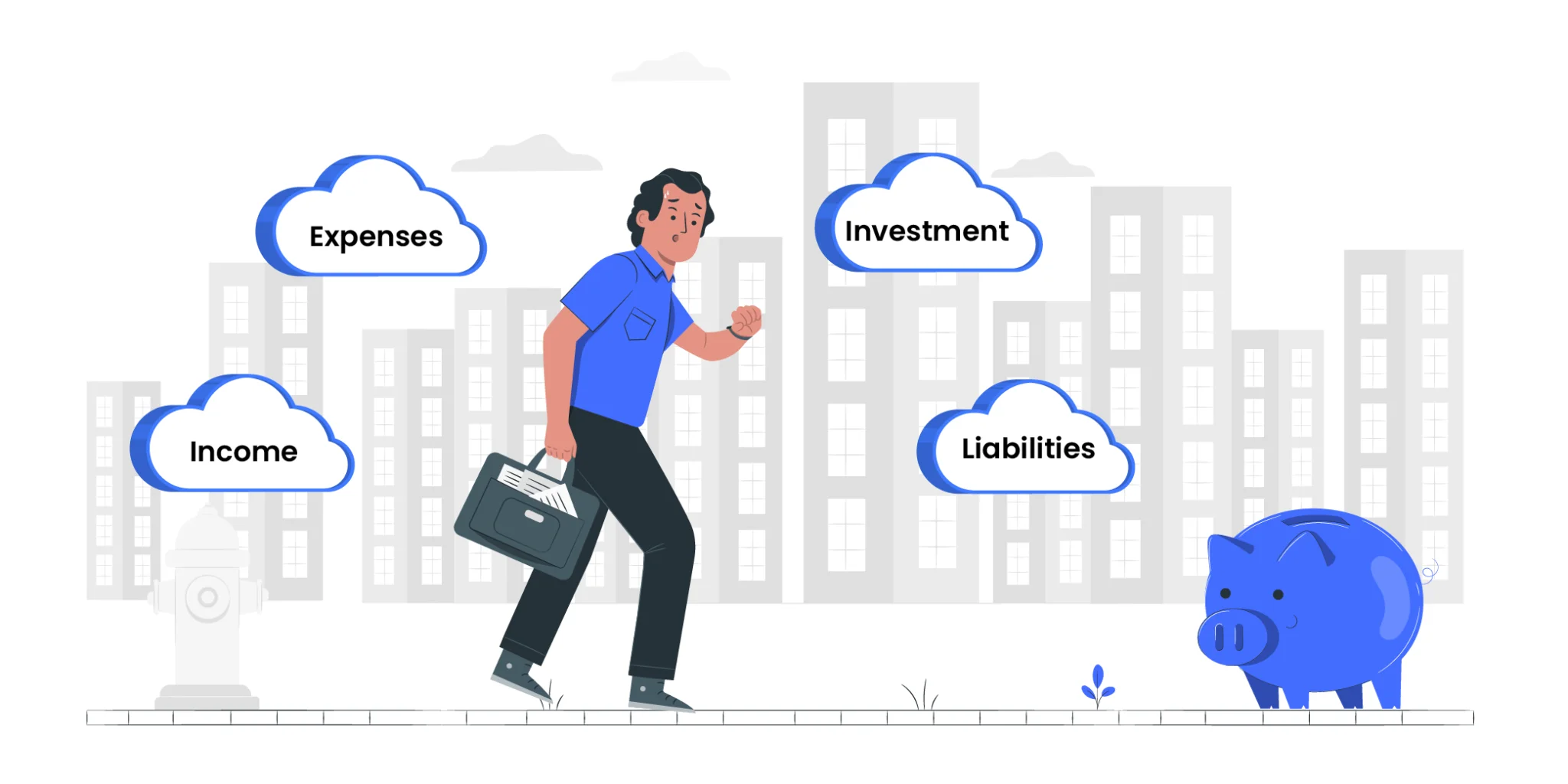For generations, the idea of owning a house has been deeply ingrained in our psyche as one of the ultimate goals of financial success. It is often seen as a symbol of stability and security.
You have probably heard it a hundred times: “Buying a house is one of the best investments you can make.” But is a house really an investment? That’s the question we are exploring in this article.
In a world where financial landscapes shift like sand dunes, we need to take a closer look. Does the idea of homeownership hold up to the other avenues of investments, or is it time to redefine what we mean when we say “investment”?
Ready to navigate the world of investments with clarity and confidence? Sign up with Koshex today and unlock hyper-personalized insights for smarter financial choices!
Is A House Really An “Investment” Or Just An Asset?
What does it mean to invest? It is not just about spending money. It is about choosing assets that will grow in value and generate income over time.
One of the most common assets that people consider as an investment is real estate, especially a house. Many have been taught that buying a house is a way to secure a shelter and also a smart financial move.
But is this really true? Is buying a house really an investment, or is it just a myth that needs to be debunked?
Understanding Real Estate
Real estate, as an asset class, possesses a unique set of attributes that have made its reputation as a solid investment. Unlike many financial instruments that can feel intangible, real estate is tangible, something you can see, touch, and live in. This tangibility adds a layer of comfort and certainty for many investors.
One of the primary factors that make real estate an attractive investment is its tendency to appreciate over time. It is common to hear stories of houses doubling or tripling in value over the years. This potential for capital appreciation is significant for investors looking to build wealth.
But real estate is not just about the promise of future gains. It also has a unique ability to generate income in the present. Rental income is a prime example of this. Owning property and leasing it out can provide a consistent stream of income, which can be especially valuable for retirees or those looking for a passive income source.
Risks and Challenges of Real Estate
The real estate market is not without its risks and challenges. Property values can fluctuate, and the market can be influenced by various economic factors. Moreover, being a landlord comes with responsibilities and potential headaches. It is not a hands-off investment like some financial instruments can be.
The following are the risks and challenges of real estate:
Maintenance Costs
Houses, unlike some financial assets, require ongoing investment. From roof repairs to plumbing issues, maintenance costs can add up significantly over the years. While these costs contribute to the property’s overall value, they can also offset the gains you might expect from its appreciation.
Property Taxes
Property taxes are another important consideration. When you buy a house, you are not just purchasing a physical structure. You are also acquiring a financial obligation to the government in the form of property taxes. These taxes can vary widely depending on your location and the value of your property. While property taxes are essential for funding local services, they can impact your overall return on investment.
Also Read : All You Need To Know About Saving Income Tax
Liquidity
Furthermore, a house is not a liquid asset. Unlike stocks or bonds that can be easily bought and sold, selling a house can be a lengthy and uncertain process. If you need access to funds quickly, a house may not provide the liquidity you require. This lack of liquidity can be a significant drawback.
All these factors challenge the assumption that buying a house is a straightforward investment. It is a multifaceted financial decision that involves ongoing costs, potential tax implications, and limitations on liquidity.
Factors to Consider Before Buying Real Estate
Before making the decision to buy a house as an investment, there are several vital factors to consider.
Location
The location of your property can make or break your investment. Consider factors like proximity to schools, public transportation, employment hubs, and the overall neighborhood. A house in a desirable location tends to appreciate more over time.
Market Conditions
Real estate markets can be cyclical and can vary depending on your region. Analyze the current market conditions in your target area. Is it a buyer’s market, where prices are low and inventory is high? Or is it a seller’s market, with rising prices and limited choices?
Financing Options
Consider how you plan to finance your real estate purchase. The terms of your mortgage, interest rates, and down payment will affect your overall investment. Explore various financing options to find the one that aligns with your financial strategy.
Diversification
Diversifying your investment portfolio is a fundamental strategy for managing risk. Evaluate how buying a house fits into your overall investment strategy. Does it complement your existing investments, or will it over-concentrate your wealth in real estate?
By examining these factors and aligning them with your personal financial situation, you can make a well-informed decision about whether buying a house is a sound investment choice for you.
Also Read : Mutual Fund Diversification – How and Why To Do It?
As you navigate these considerations, remember that Koshex offers invaluable tools and insights to help you manage your investments effectively. Sign up with Koshex today to access hyper-personalized financial advice.
Bottom Line
While making any major financial decisions, the question of whether buying a house is an investment rises. The notion that homeownership equates to financial security has been etched into our culture. And indeed, there are compelling reasons to view real estate as an investment.
Real estate, as an asset class, possesses unique attributes that include the potential for capital appreciation and the opportunity to generate regular income through rental properties.
The real estate market also carries its share of risks and challenges. Maintenance costs, property taxes, and limited liquidity are just a few aspects that can challenge the assumption of real estate being one of the greatest investments out there. The decision to buy a house as an investment should be a nuanced one, deeply rooted in your unique financial goals and circumstances.
Remember that Koshex is your trusted companion in providing you with hyper-personalized insights and tools to navigate the world of investments with confidence. Sign up with Koshex today!
Frequently Asked Questions (FAQs)
Q1. Is real estate a safer investment compared to stocks and bonds?
Ans. Real estate can be a stable and tangible investment, but it is not without its risks. The safety of your investment depends on factors like market conditions, location, and your financial goals.
Q2. How can I estimate the potential rental income from a property?
Ans. The rental income from a property depends on various factors, including location, property type, and market demand.









Leave a Comment